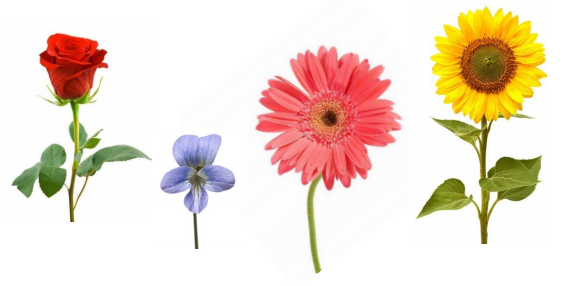factsheet – cat-friendly flowers
Cat-friendly flowers
(To download this factsheet please click here)
There’s nothing quite like receiving a nice bunch of flowers to brighten your day. But did you know that not all flowers are created equal when it comes to your feline friend’s safety?
Before displaying flowers you’ve received or buying some for friends with pets, here’s a quick reference guide for the more common flowers you’ll find at your local florist.
What’s hot and what’s not in the world of feline friendly flowers:
| HOT (feline-friendly) | NOT (avoid) |
| Roses | Lilies (the most toxic – avoid at all costs!) |
| Sunflowers | Tulips |
| Gerberas | Carnations |
| Snap dragons | Daffodils |
| Orchids | Baby’s breath |
| Pansies | Azaleas |
| African violets | Bird of paradise |
| Bottlebrushes | Mistletoe |
| Impatiens | Ivy |
| Holly | |
| Begonias | |
| Iris |
Most of the flowers to avoid can cause gastrointestinal signs in cats if ingested (vomiting, loss of appetite and depression).
However ingestion of the lily flower is very serious and can be fatal. All parts of the lily are toxic. This means any small amount of the stem, flower, leaves, or pollen ingested can potentially cause lily toxicity in cats. Cats can even ingest this unintentionally by brushing against a lily flower and causing traces of pollen to fall on the cat’s coat, only to be ingested later through grooming.
Many florists and cat owners are unaware of the toxicity of lilies, so please take the time to inform them of the dangers.
For more information and for a full list of flowers and plants that can be of danger to your cat, please visit the American Society for the Prevention of Cruelty to Animals website: Toxic and Non-Toxic Plant List – Cats | ASPCA
Also refer to our factsheet Hazards for your Cat.
With so many beautiful flowers on the market, it can get confusing remembering which ones are safe. So a little rhyme listing some of the safe flowers you can pick may help:
Roses are red, violets are blue, these flowers are safe, gerberas and sunflowers too!

If you think your cat has ingested lilies or you witness your cat chewing or licking on any part of the plant (including pollen), go straight to your vet regardless of whether your cat shows signs of illness. Initially your cat may vomit and then appear normal but it can take 24-72 hours for lily toxicity, which causes severe renal failure, to develop. This will be fatal if untreated or if treatment is delayed.
While all care has been taken in preparing this document, it is intended to provide general information only and should not be taken as constituting professional advice. Mention of a product or business does not mean endorsement by Cat Protection.





